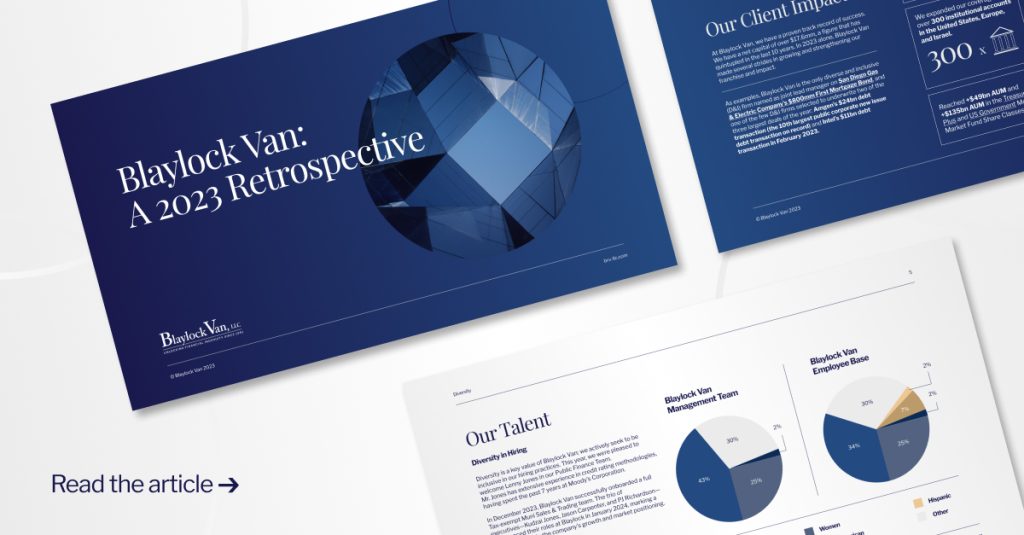Diversity and inclusion initiatives are evolving and becoming a critical element within many US corporations. It does not take much to see that organizations and employees are also embracing diversity now more than ever. Unfortunately, many companies have been left behind in this transformative period within the U.S. corporate landscape.
To attract and retain top talent, employers must remain current in their hiring practices and ideals surrounding maintaining a diverse workforce. They must be just as diligent in establishing an inclusive culture for all employees to thrive. Unfortunately, a subsection of executives are not convinced that diversity initiatives will propel their business forward. Within this article I hope to give a few brief statistical findings and reasons as to why this mindset is archaic and may lead to disappointing results down the line.
National Demographics are Changing
Believe it or not, one of the major reasons for increased diversity in the corporate workforce is simply due to the fact that a larger percentage of job seekers and current employees belong to minority groups. As the overall population begins to diversify, we find today’s workforces becoming more diverse than their predecessors. According to CNN Money, only 21.2 million members of the baby boomer generation (born 1946-1964) identified as Hispanic, Black, Asian, Indigenous, or mixed race.1 Alternatively, there are about 32.2 million millennials (born 1981-1996) that belong to these diverse groups, totaling about 44% of the entire generation.2 With statistics like these, recruiters should not have any issue employing top talent with diverse backgrounds.
Diverse Teams Make Better Decisions
It seems obvious that individuals from a wide range of backgrounds and life experiences will come up with varied decisions. However, this line of reasoning has not always been applied to the corporate work sphere as well. A study performed by a human resources firm found some staggering results relating to diverse teams and their ability to come to impactful business decisions. Compared to homogeneous teams, diverse teams made decisions faster and outperformed their counterpart by over 87%.3 The most successful teams included members selected based on gender, ethnic/geographic diversity, and age.
Workers Value Diversity
Not only is diversity increasingly prevalent in society as a whole, but employees also seem to prefer and value diverse environments over those that are not. Over half (57%) of employees want their employers to introduce and improve diversity initiatives company wide, according to recent studies.4 Up to 80% of people value diversity and believe it benefits current and future employees over time.5
Diverse and Inclusive Cultures Lead Boost Productivity
The millennial generation contains more racial diversity than ever before and many of these individuals value diversity more than past generations of American workers. Ideas presented by people of various backgrounds are valued and may allow teams to view complex business issues in a new light. According to cultural diversity workplace statistics, millennials believe that programs aimed at diversity and inclusion improve business opportunities.6 Respondents also claimed to be more actively engaged in their work if they believe their company stimulates a culture that is both diverse and inclusive.7
Employees Recognize That Managers CAN Increase Diversity
In year’s past, improving diversity and inclusion has always been at the bottom of the list in terms of importance to upper-level management. In fact, nearly half of managers stated they were ‘too busy’ to implement these initiatives throughout the firm’s internal culture and externally while hiring candidates.4 However, employees are no longer falling for this excuse. 45% of full-time and part-time workers believe managers have the highest potential to boost diversity within their firm(s).9
While a seemingly insignificant statistic on its own, understanding this in context of the above points highlights the bigger issue. If a company is not deemed sufficiently diverse by its millennial employees, workers may be less likely to fully perform at maximum output levels for their employer. Millennial employees have grown up in an era where diversity and inclusion are a highly valued part of the corporate landscape. While management could ignore diversity and claim they were too busy previously, employees are not accepting this excuse any longer.
The United States of America is now more diverse than ever before. Current and future generations of workers want these changes in the structure of America to also be reflected in the people they collaborate with daily. Most importantly, employees continue to watch and take note when their firm does implement diversity and inclusion initiatives. They take note when their organizations take steps toward improving innovation, productivity, and stimulating an increasingly positive corporate culture. Organizations that continue to ignore this trend will ultimately be left behind, as inclusive firms flourish and realize the immense benefits of diversity of age, gender, and race.
 Mr. Hough currently serves in a dual capacity with Blaylock Van as the Chief Operating Officer (COO) and a member of the Public Finance Team. Prior to rejoining Blaylock Van, Mr. Hough was CCO at IFS Securities and is the Founding Member of Taurus Compliance Consulting, LLC. Mr. Hough has also served as CEO of Jumpstart Securities (formerly FundAmerica Securities) as well as President and CEO of Capital & Credit International, Inc. Mr. Hough began his career at FINRA’s District 7 office.
Mr. Hough currently serves in a dual capacity with Blaylock Van as the Chief Operating Officer (COO) and a member of the Public Finance Team. Prior to rejoining Blaylock Van, Mr. Hough was CCO at IFS Securities and is the Founding Member of Taurus Compliance Consulting, LLC. Mr. Hough has also served as CEO of Jumpstart Securities (formerly FundAmerica Securities) as well as President and CEO of Capital & Credit International, Inc. Mr. Hough began his career at FINRA’s District 7 office.**Disclaimer**
This article was prepared exclusively for Blaylock Van, LLC. Links are solely intended for convenience and are not intended to be advertisement whatsoever. Linked sites are not under the control of Blaylock Van, LLC and Blaylock Van, LLC is not responsible for the content of any linked site or any link contained in this article. Blaylock Van, LLC does not endorse companies, or their products or services, to which it links. If you decide to access any of the third-party sites linked to this site or article, you do this entirely at your own risk. This document is confidential and has been prepared for informational purposes only. This document is not to be construed as a recommendation, an offer to sell or a solicitation of an offer to buy any securities. Any dissemination, distribution or reproduction of this document is strictly prohibited without the consent of Blaylock Van, LLC. The information herein is obtained from sources deemed reliable, but its accuracy and completeness cannot be guaranteed, and is subject to change without notice.
_______
1 “Millennial Generation Is Bigger, More Diverse than Boomers,” accessed April 17, 2021, https://money.cnn.com/interactive/economy/diversity-millennials-boomers/.
2 Census Bureau QuickFacts. 2021. U.S. Census Bureau QuickFacts: United States. [online] Available at: <https://www.census.gov/quickfacts/fact/table/US/PST045219
3 Diversity Inc, “Where’s the Diversity in Fortune 500 CEOs?” available at http://diversityinc.com/diversity-facts/wheresthe-diversity-in-fortune-500-ceos/ (last accessed July 2012).
4 “What Job Seekers Really Think About Your Diversity and Inclusion Stats.” Glassdoor.com, November 14, 2014. https://www.glassdoor.com/employers/blog/diversity/?nabe=6392912005562368:1
5 Petersen, B., 2016. The state of US workplace diversity in 14 statistics | ArchPoint Consulting. [online] ArchPoint Consulting. Available at: https://archpointgroup.com/the-state-of-us-workplace-diversity-in-14-statistics/
6 Parsi, N., 2017. Workplace Diversity and Inclusion Gets Innovative. [online] SHRM. Available at: https://www.shrm.org/hr-today/news/hr-magazine/0217/Pages/Disrupting-Diversity-In-The-Workplace.aspx
7 Smith, C. and Turner, S., 2015. [online] Www2.deloitte.com. Available at: https://www.shrm.org/hr-today/news/hr-magazine/0217/Pages/Disrupting-Diversity-In-The-Workplace.aspx
8 NBER. 2003. Employers’ Replies to Racial Names. [online] Available at: https://www.nber.org/digest/sep03/w9873.html




